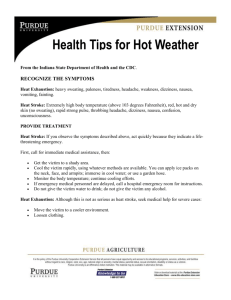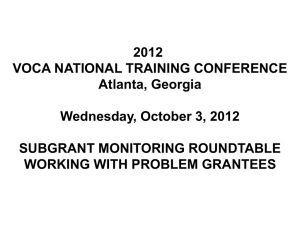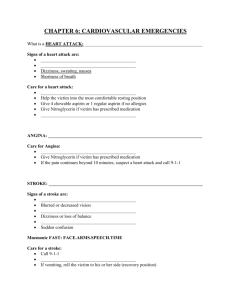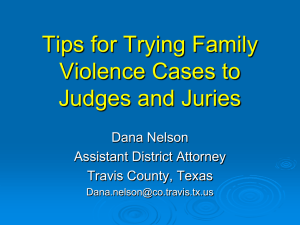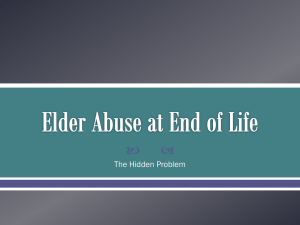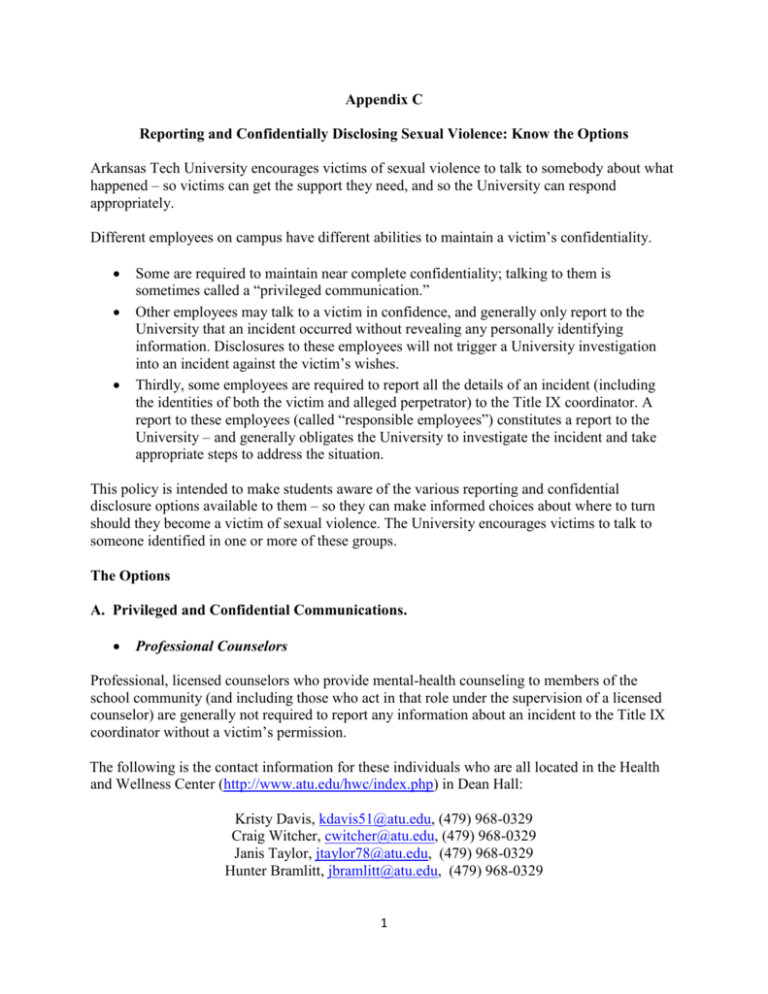
Appendix C
Reporting and Confidentially Disclosing Sexual Violence: Know the Options
Arkansas Tech University encourages victims of sexual violence to talk to somebody about what
happened – so victims can get the support they need, and so the University can respond
appropriately.
Different employees on campus have different abilities to maintain a victim’s confidentiality.
Some are required to maintain near complete confidentiality; talking to them is
sometimes called a “privileged communication.”
Other employees may talk to a victim in confidence, and generally only report to the
University that an incident occurred without revealing any personally identifying
information. Disclosures to these employees will not trigger a University investigation
into an incident against the victim’s wishes.
Thirdly, some employees are required to report all the details of an incident (including
the identities of both the victim and alleged perpetrator) to the Title IX coordinator. A
report to these employees (called “responsible employees”) constitutes a report to the
University – and generally obligates the University to investigate the incident and take
appropriate steps to address the situation.
This policy is intended to make students aware of the various reporting and confidential
disclosure options available to them – so they can make informed choices about where to turn
should they become a victim of sexual violence. The University encourages victims to talk to
someone identified in one or more of these groups.
The Options
A. Privileged and Confidential Communications.
Professional Counselors
Professional, licensed counselors who provide mental-health counseling to members of the
school community (and including those who act in that role under the supervision of a licensed
counselor) are generally not required to report any information about an incident to the Title IX
coordinator without a victim’s permission.
The following is the contact information for these individuals who are all located in the Health
and Wellness Center (http://www.atu.edu/hwc/index.php) in Dean Hall:
Kristy Davis, kdavis51@atu.edu, (479) 968-0329
Craig Witcher, cwitcher@atu.edu, (479) 968-0329
Janis Taylor, jtaylor78@atu.edu, (479) 968-0329
Hunter Bramlitt, jbramlitt@atu.edu, (479) 968-0329
1
A victim who speaks to a professional counselor must understand that, if the victim wants to
maintain confidentiality, the University will be unable to conduct an investigation into the
particular incident or pursue disciplinary action against the alleged perpetrator.
Even so, these counselors will still assist the victim in receiving other necessary protection and
support, such as victim advocacy, academic support or accommodations, disability, health or
mental health services, and changes to living, working or course schedules.
A victim who at first requests confidentiality may later decide to file a complaint with the
University or report the incident to local law enforcement, and thus have the incident fully
investigated. These counselors will provide the victim with assistance if the victim wishes to do
so.
Medical Professionals
The medical professionals who work in the on-campus health center can generally talk to a
victim without revealing any personally identifying information about an incident to the
University. A victim can seek assistance and support from these individuals without triggering a
University investigation that could reveal the victim’s identity or that the victim has disclosed the
incident.
While maintaining a victim’s confidentiality, these individuals or their office should report the
nature, date, time, and general location of an incident to the Title IX Coordinator. This limited
report – which includes no information that would directly or indirectly identify the victim –
helps keep the Title IX Coordinator informed of the general extent and nature of sexual violence
on and off campus so the coordinator can track patterns, evaluate the scope of the problem, and
formulate appropriate campus-wide responses. Before reporting any information to the Title IX
Coordinator, these individuals will consult with the victim to ensure that no personally
identifying details are shared with the Title IX Coordinator.
Following is contact information for these Medical Professionals:
Rebecca Gray, Advanced Practice Registered Nurse
rgray12@atu.edu
Robin Koontz, Advanced Practice Registered Nurse
rkoontz@atu.edu
Heather Stout, Registered Nurse
hstout1@atu.edu
(479) 968-0329
Health and Wellness Center, Dean Hall 126
(http://www.atu.edu/hwc/index.php)
2
NOTE: While the professional counselors and medical professionals may maintain a victim’s
confidentiality vis-à-vis the University, they may have reporting or other obligations under state
law. For example, mandatory reporting to law enforcement in case of minors; instances of
imminent harm to self or to others; or being subpoenaed to testify in a criminal case
ALSO NOTE: If the University determines that the alleged perpetrator(s) pose a serious and
immediate threat to the University community, those individuals who serve as Campus Security
Authorities under the Cleary Act may be called upon to issue a timely warning to the
community. Any such warning should not include any information that identifies the victim.
B. Reporting to “Responsible Employees.”
A “responsible employee” is a University employee who has the authority to redress sexual
violence, who has the duty to report incidents of sexual violence or other student misconduct, or
who a student could reasonably believe has this authority or duty. When a victim tells a
responsible employee about an incident of sexual violence, the victim has the right to expect the
University to take immediate and appropriate steps to investigate what happened and to resolve
the matter promptly and equitably.
A responsible employee must report to the Title IX coordinator all relevant details about the
alleged sexual violence shared by the victim and that the University will need to determine what
happened – including the names of the victim and alleged perpetrator(s), any witnesses, and any
other relevant facts, including the date, time and specific location of the alleged incident.
To the extent possible, information reported to a responsible employee will be shared only with
people responsible for handling the University’s response to the report. A responsible employee
should not share information with law enforcement without the victim’s consent or unless the
victim has also reported the incident to law enforcement.
The following employees (or categories of employees) are the University’s responsible
employees:
Resident Directors, Resident Assistants, Area Coordinators, Associate Deans, Dean of
Students, President, Chancellor, Vice Presidents, Vice Chancellors, Assistant Vice
Presidents, Academic Department Heads, Academic Deans, Athletic Director, Assistant
Coaches, Head Coaches, Faculty Advisors for Student Groups, employees in the
Department of Public Safety.
Before a victim reveals any information to a responsible employee, the employee should ensure
that the victim understands the employee’s reporting obligations – and, if the victim wants to
maintain confidentiality, direct the victim to confidential resources.
If the victim wants to tell the responsible employee what happened but also maintain
confidentiality, the employee should tell the victim that the University will consider the request,
but cannot guarantee that the University will be able to honor it. In reporting the details of the
3
incident to the Title IX Coordinator, the responsible employee will also inform the Coordinator
of the victim’s request for confidentiality.
Responsible employees will not pressure a victim to request confidentiality, but will honor and
support the victim’s wishes, including for the University to fully investigate an incident. By the
same token, responsible employees will not pressure a victim to make a full report if the victim is
not ready to.
Requesting Confidentiality From the University: How the University Will Weigh the
Request and Respond.
If a victim discloses an incident to a responsible employee but wishes to maintain confidentiality
or requests that no investigation into a particular incident be conducted or disciplinary action
taken, the University must weigh that request against the University’s obligation to provide a
safe, non-discriminatory environment for all students, including the victim.
If the University honors the request for confidentiality, a victim must understand that the
University’s ability to meaningfully investigate the incident and pursue disciplinary action
against the alleged perpetrator(s) may be limited.
Although rare, there are times when the University may not be able to honor a victim’s request in
order to provide a safe, non-discriminatory environment for all students.
The University has designated the following individual(s) to evaluate requests for confidentiality
once a responsible employee is on notice of alleged sexual violence:
Ms. Jennifer Fleming, Title IX Coordinator
When weighing a victim’s request for confidentiality or that no investigation or discipline be
pursued, the Title IX Coordinator will consider a range of factors, including the following:
The increased risk that the alleged perpetrator will commit additional acts of sexual or
other violence, such as:
o whether there have been other sexual violence complaints about the same alleged
perpetrator;
o whether the alleged perpetrator has a history of arrests or records from a prior
school indicating a history of violence;
o whether the alleged perpetrator threatened further sexual violence or other
violence against the victim or others;
o whether the sexual violence was committed by multiple perpetrators;
whether the sexual violence was perpetrated with a weapon;
whether the victim is a minor;
whether the University possesses other means to obtain relevant evidence of the sexual
violence (e.g., security cameras or personnel, physical evidence);
4
whether the victim’s report reveals a pattern of perpetration (e.g., via illicit use of drugs
or alcohol) at a given location or by a particular group.
The presence of one or more of these factors could lead the University to investigate and, if
appropriate, pursue disciplinary action. If none of these factors is present, the University will
likely respect the victim’s request for confidentiality.
If the University determines that it cannot maintain a victim’s confidentiality, the
University will inform the victim prior to starting an investigation and will, to the extent
possible, only share information with people responsible for handling the University’s response.
The University will remain ever mindful of the victim’s well-being, and will take ongoing steps
to protect the victim from retaliation or harm and work with the victim to create a safety plan.
Retaliation against the victim, whether by students or University employees, will not be
tolerated. The University will also:
assist the victim in accessing other available victim advocacy, academic support,
counseling, disability, health or mental health services, and legal assistance both on and
off campus (see portion of policy identifying these);
provide other security and support, which could include issuing a no-contact order,
helping arrange a change of living or working arrangements or course schedules
(including for the alleged perpetrator pending the outcome of an investigation) or
adjustments for assignments or tests; and
inform the victim of the right to report a crime to campus or local law enforcement – and
provide the victim with assistance if the victim wishes to do so.
The University may not require a victim to participate in any investigation or disciplinary
proceeding.
Because the University is under a continuing obligation to address the issue of sexual violence
campus-wide, reports of sexual violence (including non-identifying reports) will also prompt the
University to consider broader remedial action – such as increased monitoring, supervision or
security at locations where the reported sexual violence occurred; increasing education and
prevention efforts, including to targeted population groups; conducting climate
assessments/victimization surveys; and/or revisiting its policies and practices.
If the University determines that it can respect a victim’s request for confidentiality, the
University will also take immediate action as necessary to protect and assist the victim.
Miscellaneous
Take Back the Night and other public awareness events
Public awareness events such as “Take Back the Night,” the Clothesline Project, candlelight
vigils, protests, “survivor speak outs” or other forums in which students disclose incidents of
sexual violence, are not considered notice to the University of sexual violence for purposes of
triggering its obligation to investigate any particular incident(s). Such events may, however,
5
inform the need for campus-wide education and prevention efforts, and the University will
provide information about students’ Title IX rights at these events.
Anonymous Reporting
Although the University encourages victims to talk to someone, the University provides an
online system for anonymous reporting. The system will notify the user (before s/he enters
information) that entering personally identifying information may serve as notice to the
University for the purpose of triggering an investigation. The website is:
http://www.atu.edu/psafe-report-sexassault.php
Off-campus Counselors and Advocates
Off-campus counselors, advocates, and health care providers will also generally maintain
confidentiality and not share information with the University unless the victim requests the
disclosure and signs a consent or waiver form.
Following is contact information for these off-campus resources:
Victim Assistance Outreach Program
The 5th Judicial District Prosecuting Attorney’s Office has a “Victim Assistance Outreach
Program” which provides assistance with:
o
o
o
o
Orders of Protection
Contacting Law Enforcement Agencies
VINE (Victim Identification and Notification Everyday)
Arkansas Crime Victims Reparations Program (assists with financial
compensation, counseling, lost wages, and funeral expenses).
o Referrals to other community services such as the Ozark Rape Crisis Center,
River Valley Shelter, and Crisis Intervention Center.
o Information on the criminal court process.
The contact person for this program is Patricia Andrade. Her telephone number is (479) 7050579.
Ozark Rape Crisis Center
Located in Clarksville, Arkansas, this entity provides 24 hour crisis intervention. The hotline
telephone number is (800) 818-1189 and the website is: http://www.ozarkrapecrisis.com/
NOTE: While these off-campus counselors and advocates may maintain a victim’s
confidentiality vis-à-vis the University, they may have reporting or other obligations under state
law in instances such as mandatory reporting to law enforcement in case of minors; imminent
harm to self or others; requirement to testify if subpoenaed in a criminal case.
6


